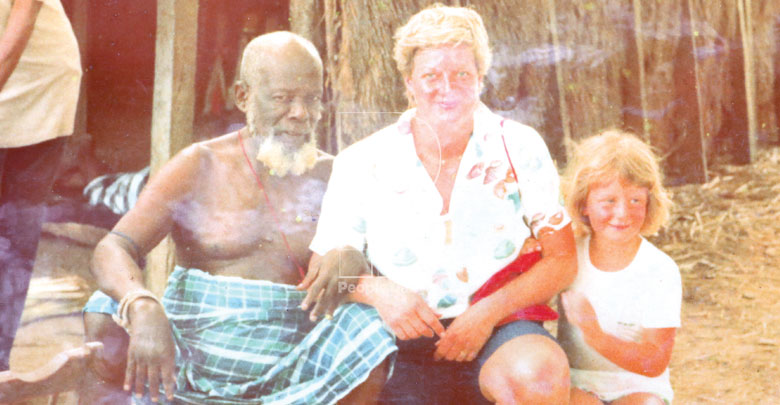Kabwere Wanje, medicine man who had 147 wives
By Jasmine Atieno, July 31, 2019Where did the name Kabwere come from?
Kabwere originated from a Giriama plant ‘bwere’ known for its slippery nature. He was given this name because he was known to exhibit this character where he would slip through British colonials had tried to capture him many times to no avail. It is said he would pass them without being noticed.
What powers did Kabwere possess, which allowed him to be invincible?
He was a traditional medicine man and healer. It was a sacred practice involving the invocation of spirits, which is passed on from father to the elder son. He inherited the practice from his father who was a prominent healer too.
During the Giriama resistance against the colonials, which was led by leaders such as Mekatilili wa Menza, my father was the one who administered oaths.
What other role did he play in the colonial war?
My father would supply the warriors with food supplies since he was a rich and generous man. He sustained the warriors with armour. He was also a close friend of the late Mzee Jomo Kenyatta.
How close was he to the first president of Kenya?
Mzee Kenyatta would visit Kabwere’s homestead for fortune and luck. However, he is known to have made a number of visits to our home and a close friendship developed between the two.
It is said that your father had so many wives he barely noticed if one ran away…
Yes. He had about 147 wives and over 600 children. My late mother, Kache Kalama was his first wife and got two children.
How did he manage his big family?
He was a rich man. Although, not all those wives were actually ‘wives’. In those days, a family, which had received healing or fortune telling would sometimes offer their daughter as a ‘wife’ to the old man.
The daughter would join the Kabwere family, but not really as a wife, rather a family member. Most of those wives had children from different men who they maintained relationships with – but on the surface they were regarded as ‘Kabwere’s wives’.
Also, there were poor people who came to live as part of the Kabwere family since the man was rich. All of them were treated as family members and came to be identified as such.
His house was in the middle of the homestead. The wives had their own houses and others lived away from the homestead. He gave them, each a shamba to live with their children.
It must have been such a challenge to actually feed all these people, right?
Not really for my father. He had many farms. His whole family took part in farming. He would bring a lorry to carry the whole family to the farms.
He didn’t encourage laziness. Some days, the wives would farm at the family’s big farm and other days they would be working on their individual land.
Do you have a family get together?
No close family relations exist. We exist as single units scattered all over and often have to rely on the ‘Mlanda’ or Kabwere name to ask if one is a relative.
What was the biggest lesson from your father?
Mzee’s biggest lesson to us all was his kindness and hospitality. His healing powers were also born from a place of kindness and humanity. Everyday, over 50 people would eat and stay at our home from dawn to dusk. However, sometimes his kindness was abused.
I remember one time a man dressed his son like a woman and married him off to my father. When the purported wife undressed, lo and behold, it was a man!
What can you say is the best thing your father did for you?
Despite that the practice of traditional healing is now not common in Africa, I am proud to keep it alive. The best thing is that I can access almost all the healing herbs in the forest, which he left for the family.
At least he saved me from the struggle I see with most healers today. The herbs are either scarce, so they have to travel all the way to Zimbabwe. But my father left us a forest here and gave strict instructions to protect it.
Is the practice still popular?
Yes! And people still come here for healing. Basically anti-witchcraft healing. This means, if someone has been bewitched—you know this still happens widely in Africa…this is the place to get an antidote.
It used to be the run to place before the Christians brought the Word. It still is, although there are people who are today afraid to practise this kind of healing. But it is our culture. Our true way.
Do people still come to pay homage to your father’s home?
My father instilled the importance of culture and the traditions of our people in all of us. In reality, we are just who we are. The river must have a source, right? If you cut the root of a tree it is as good as dead.
Our old man’s old shrine and place where he received visitors, stands strong at the heart of our home just like it was from the beginning. We receive visitors daily, on a healing quest and some on a research journey trying to learn or document our father’s life.
